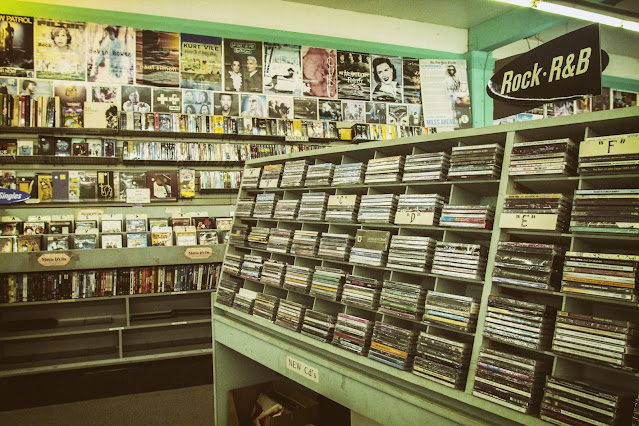All the Faults and Disadvantages of Vinyl
Non Fill
Non fill refers to a pressing defect that occurs when the molten vinyl does not flow fully to produce a well formed groove. It occurs most often on a 180g record's outer edge and is caused by the vinyl's beginning to harden prematurely.
The sound produced is noise, a sound that we've all heard too often. This was the problem that plagued Classic's early 200g Quiex SV-P flat profile pressings.
Crackle on Vinyl Records
Simply put, the crackle you hear through your speaker is the amplification in sound of an impurity or obstruction on the record surface. When the stylus encounters one of this issue the result will be either a crackle or a pop.
A dirty record is one of the most common reasons for crackle. Dust and dirt lodged in the record grooves act as an obstacle for your turntable’s stylus, and when the stylus hits one of these microscopic particles it will jump and create that popping sound associated with crackle.
Damage to the surface and grooves of the record is another causal factor in record crackle. Even the best cared for vinyl records are susceptible to some form of damage, such is the vulnerable nature of a disc, and scratches, groove malformations and other defects caused by wear and tear all contribute to a record surface that produces crackle when it comes into contact with a stylus.
Impure, poor quality or recycled vinyl is also another reason, as the amount of impurities included in the finished disc result in a defective record surface, which in turn leads to reduced sound quality. Some records are just made to a better finished quality than others. It really can be that simple.
Warped Records
Warped vinyl is an issue that can significantly impact playback quality. Warping can occur during the manufacturing process or due to improper storage conditions. When inspecting a vinyl record, place it on a flat surface and check to see if it lays flat. If you notice any unevenness or if the record wobbles when spinning, it most likely has a warp.
When it comes to vinyl record warping, there are two primary types that we see: dish-warp and edge-warp. Each type of warp affects the vinyl record differently and can have varying degrees of impact on the sound quality and playback experience.
Dish Warp
Dish warp, also known as bowl warp or centre warp, refers to a type of warping where the centre of the record is raised or elevated compared to the outer edges. This creates a concave shape, resembling a dish or a bowl. Dish warp is typically caused by uneven cooling during the manufacturing process or exposure to excessive heat or direct sunlight. It can also occur due to poor storage conditions where records are stacked improperly. When playing a record with a dish warp, the tonearm and stylus may have difficulty tracking the groove accurately, resulting in skipping or mistracking. The sound quality may also be compromised, with fluctuations in pitch and an overall distorted playback. Moreover, repeated playback on a dish warped record can put additional strain on the turntable’s stylus and motor, potentially causing damage over time.
Edge Warp
Edge warp, also known as rim warp or edge curl, is characterised by the record’s outer edge being raised or bent upwards compared to the centre. This creates an uneven or wavy surface, and the record may not sit flat when placed on a turntable. Edge warp occurs for a variety of reasons, including improper storage, exposure to temperature fluctuations, or mishandling during shipping.
Its impact on sound quality tends to be less severe. Depending on the degree of edge warp, the stylus may encounter uneven grooves, leading to minor fluctuations in pitch or a slightly distorted sound.
Some turntables equipped with adjustable tonearms can compensate to a certain extent.
Maintaining Vinyl
Vinyl is harder to maintain than CDs, and should ideally be stored in temperature and humidity controlled environments. Mold can grow on vinyl and may permanently damage it and its sleeve, and can spread from record to record.
Vinyl is very easy to damage during playback. Any scraping of the surface can permanently compromise the sound quality.
More information on damaged vinyl:
This is What "Non-Fill" Looks Like
Why Do Vinyl Records Crackle, And How Can You Stop It?
Common Faults To Watch Out For When Buying New Vinyl Records
Disadvantages
See previous Post



Comments
Post a Comment